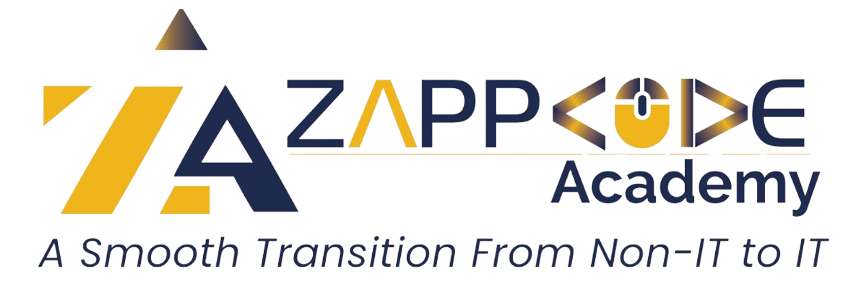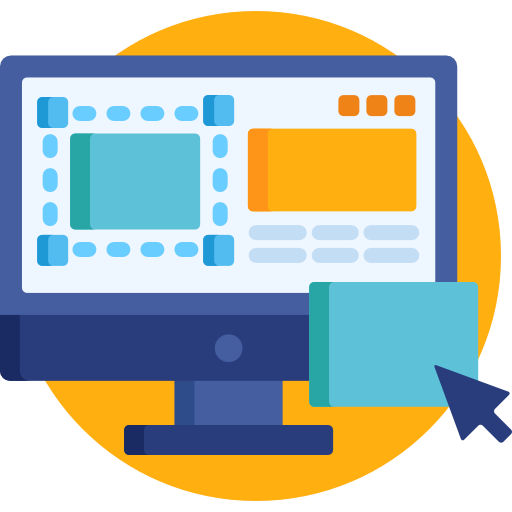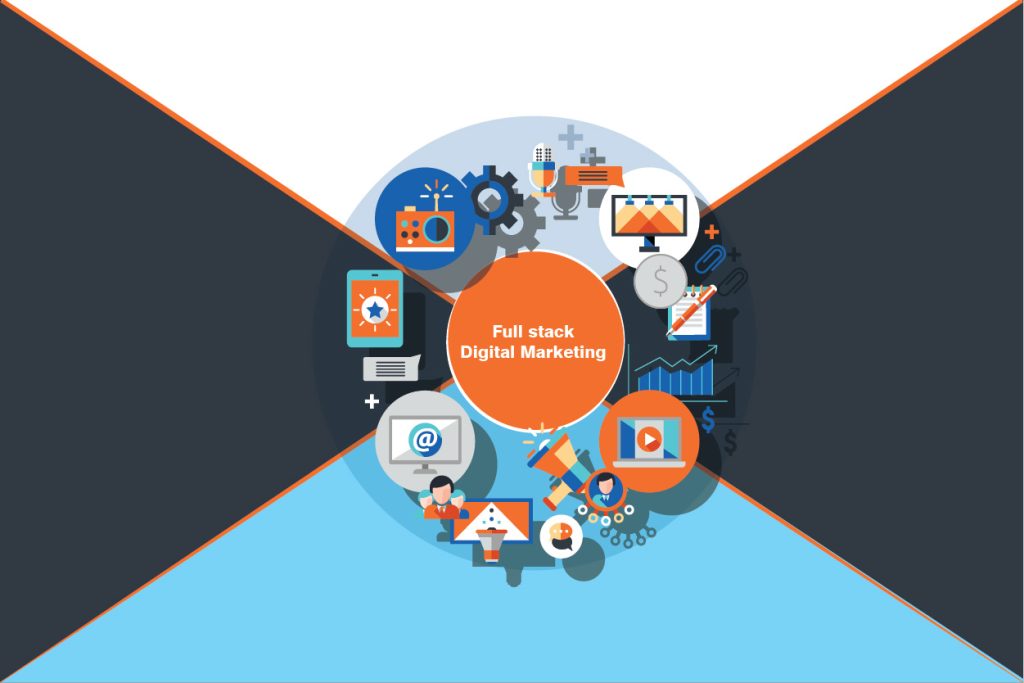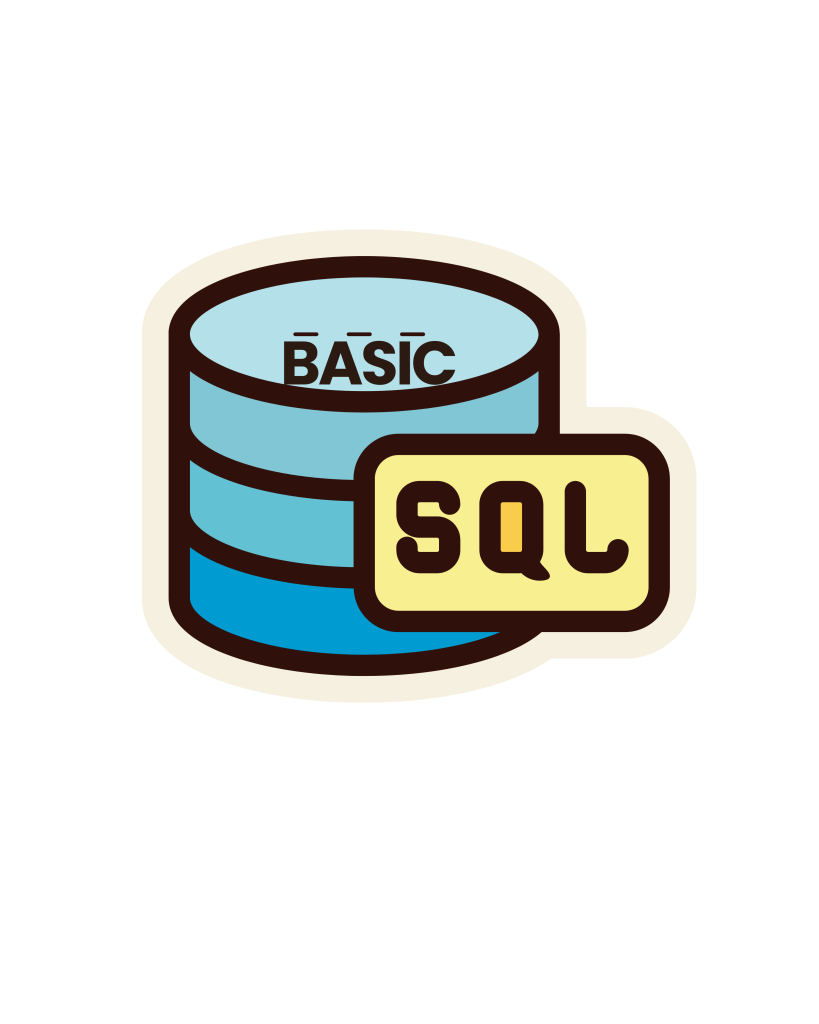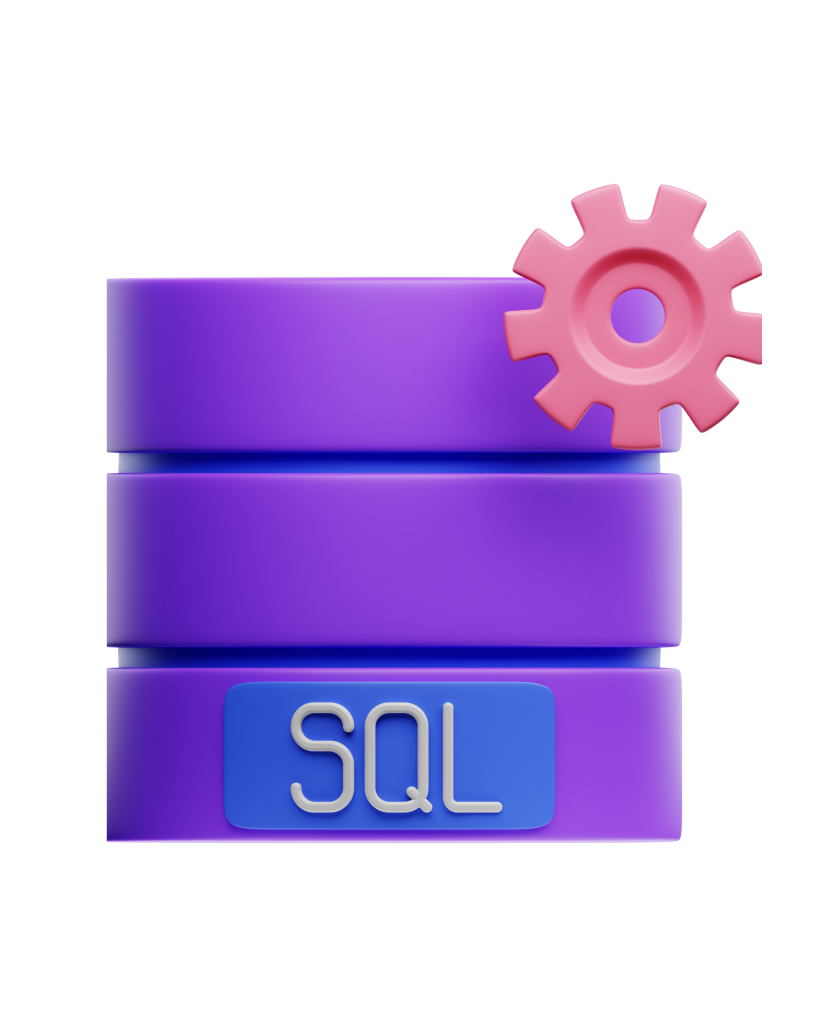Enroll Now
Web development course in Nagpur
Land a high-paying job with our customized web development course in Nagpur.
Download
- Expert Trainer
- Affordable Fees
- Placement Opportunities
- Hands on Training
- Flexible Timings
- Industry Based Training
Attend Free Demo
Fill the details and we will call you for further guidance
Learn Web Development: Courses Tailored for You in Nagpur
If you’re interested in web development, you’re likely looking for a structured way to start learning. Whether you’re someone exploring a new career or just curious about how websites work, web development courses in Nagpur are a great place to begin. These courses cover everything from understanding basic website structures to building fully functional websites.
At Zappcode Academy, we offer a well-rounded curriculum that ensures you’re not only learning how to code but also understanding how web technologies fit into the bigger picture of today’s digital world.
Why Full Stack Developer Skills Matter
While learning web development, you might wonder, “Should I focus on front-end or back-end development?” The good news is that you don’t have to choose. With a full stack developer course in Nagpur, you’ll get the best of both worlds. This course covers front-end development, where you’ll work on what users see and interact with, like buttons, menus, and layouts. But it also dives into back-end development, where you learn how to ensure that websites run smoothly, using databases and servers.
Understanding both sides of development not only makes you more versatile but also opens up more career opportunities. Full stack developers are in high demand because they can handle entire projects from start to finish, making them valuable assets in tech companies and startups alike.
Hands-On Web Development Training in Nagpur
One of the most important aspects of learning web development is practice. Simply reading about coding isn’t enough. You need to get hands-on experience to understand how real-world projects work. That’s why web development training in Nagpur is essential for anyone looking to become a serious developer.
In these training programs, you’ll work on projects that mirror real industry tasks. You’ll learn how to create responsive designs, ensure websites work across different devices, and build secure applications. The training is structured in a way that lets you build confidence with each project you complete.
Building a Future in Web Development
As you progress in your learning, you’ll realize that web development is about more than just coding websites. It’s about solving problems and creating digital solutions that people use every day. The web development courses in Nagpur aim to provide not only the technical skills but also a mindset for continuous learning. Web technologies evolve, and having a strong foundation will allow you to adapt to changes in the field.
After completing these courses, you’ll be prepared to take on a variety of roles. Whether it’s building websites for small businesses or working in larger companies, your skills will be in demand. From content management systems to custom web applications, the opportunities are endless.
Comprehensive Full Stack Developer Course in Nagpur
For those who want a deeper dive into web development, the full stack developer course in Nagpur is a great next step. Full stack developers are known for their ability to build websites from the ground up, which means they are skilled in both client-side and server-side technologies. This course covers essential tools like HTML, CSS, JavaScript, and frameworks such as React or Angular on the front-end. You’ll also learn back-end technologies like Node.js, along with working with databases to store and manage data.
This balanced approach to learning gives you the ability to create complex, fully functional websites. Whether you aim to work for a company or become a freelancer, the skills learned in this course will be valuable in any job role that involves web development.
Web Development Training in Nagpur: Why Practical Experience Matters
When learning web development, nothing beats practical experience. That’s why the web development training in Nagpur programs focus heavily on project-based learning. Coding on your own is one thing, but working on a real-world project teaches you how to solve problems, think critically, and manage your time effectively.
Throughout the training, you’ll be guided on how to debug errors, improve performance, and create user-friendly designs. The goal is not just to teach you how to code but to make sure you’re industry-ready by the end of the training.
Conclusion: Choose the Right Web Development Course for You
In today’s tech-driven world, web development is a skill that can open many doors. If you’re serious about building a career or even just want to add a valuable skill to your toolbox, consider enrolling in web development courses in Nagpur. If you want to take it a step further, the full stack developer course in Nagpur will equip you with the ability to handle all aspects of web development.
For those looking for practical, hands-on learning, our web development training in Nagpur ensures that you’re not just learning theory but also gaining the experience needed to succeed in the real world.
Highlights of Zappcode Academy
Limited Students Batch
Personalised Attention
Highly Qualified Teachers
Flexible Batch Timings
Interactive Learning
Live Projects
Career Support
Job Oriented Training
Why Web Development Course In Zappcode?
Embrace Cutting-Edge Tools
The web development course in Nagpur offers you practical knowledge and the skills to use industry-standard design software, such as Adobe XD and Figma, along with optional experience in content management systems like WordPress.
Build a Captivating Brand Presence
If you want to design websites that not only function properly but also look appealing, you need to study creative principles, such as color theory, typography, and visual hierarchy, as they are used to ensure personal websites are visually close to your brand identity.
Full Stack Development
Full Stack Development integrates front-end and back-end skills, enabling you to create fully functional web applications. In Zappcode Academy’s web development course in Nagpur, you’ll learn essential technologies like HTML, CSS, JavaScript, databases, and server-side programming. Additionally, the course provides insights into freelance and agency work, preparing you for a range of career paths.
Career-Focused Approach
Beyond just creating a website, Zappcode Academy takes care of business name registration, business fees, licenses, and many more aspects that can hinder a business from flourishing but if well tackled can take it places. By building Knowledge about web design along with the agency and freelance opportunity guidance services available.
Get 100% Job Assistance By Enrolling In Certified Web Development Course In Nagpur
Job Assistance
30+ Companies Tie-ups
Enroll Now
Placement Initiative for our Students

Zappcode Academy's Job Assistance Program
Our web development course in Nagpur equips students with the skills and confidence to succeed in Web Development interviews. They provide Interview preparation Guidance on interview techniques, common questions, and how to showcase your digital marketing knowledge.
- Assured Training and Placement
- Placement Guidance
- Resume Building
- Mock interviews
- Drive Exams
- Provide Internship in Zappkode Solutions
Attend Free Demo
Fill the details and we will call you for further guidance
Website Planning And Designing Course Curriculam
Our Curriculum Program Covers Basic To Advance Level Content on website planning and designing
Appreciation of the Role of Websites in the Digital Era.
Website Design Fundamentals: Main Principles and Core Design Principles
Separating User Interface (UI) from User Experience (UX) Design
Establishing Site Objectives & Identifying the Target Audience
User Research Techniques: Understanding User Needs and Behavior.
Building a User Persona: Write down your target users.
Information Architecture: Structure Website Content according to its Usability.
Website Flowcharting: User Experience Mapping and Engagement.
Introduction to Wireframing Tools: Low-Fid Versions for Visualization
Wireframing Techniques: Designing Interaction Flows and Interface Design.
Prototyping for Usability Testing: Demonstrating Website Functions
User Testing & Feedback: Modifying Website Design by Users’ Suggestions.
Color Theory: Choosing Colors to Portray Emotions and Build Brand Identity
Typography Fundamentals: Go for Readable and Consistent with Brand Font Types.
Visual Hierarchy: Bringing Visitor Attention to Layout and Design Elements by Way of Guiding.
Utilizing Design Assets: Imagery, Icons, and Multimedia incorporate
Design Software Overview ( Introduction)g. , Adobe Photoshop, Figma)
Learning Interface Basics and Design Tools of the Essence
Writing a Website Mockup and Used Design Principles
Exploring Design Resources: Stock images, icons, and templates.
Popular CMS Platforms: WordPress, Squarespace, and Wix.
Getting to know CMS Features & Functionality
Building a Website Using a CMS Platform (Practical Work)
Content Management Best Practices for Websites
Introduction to SEO and Its Importance to Sites.
On-Page SEO Strategies for Higher Ranking
Keyword Research & Targeting Strategies
Incorporating SEO into Website Design and Content Planning
WCAG Accessibility Guidelines and Designing for All Users.
Usability Testing Methods and Tools
Performing User Feedback Analysis and Website Improvements.
Significance of Accessibility in Having a Good User Experience
Website statistics introduction (analytics). g. , Google Analytics)
Tracking Key Website Metrics: Traffic, Conversions, User Behavior
Using Analytics Data To Guide The Design And Content Choices.
A/B Test for Website Optimization
Website Deployment & Hosting Decisions.
Website security considerations & maintenance plans.
Constant Content Updates & Website Optimization
Download Syllabus Broucher for more details
Download
Get Training Certificate
- Get Certified Training
- Valid for all Jobs and College Training
- International Recognition
- Validate Your Skills

Students Placed and Hired in Companies












ENQUIRY FOR web development course in nagpur COURSE FEES
Enroll Now
Frequently Asked Questions
Website planning means establishing user groups, the purpose of your site, information structure, and site structure. This significance lies in the fact that it makes sure your website targets desirable users and provides easy navigation.
Fundamental design concepts incorporate different aspects such as color theory, t, and visual hierarchy. Acquainting such rules enables to creation good good-looking sites and at the same time helps users access the content effortlessly.
UX design focuses on the creation of a usability website, thus it turns on easy navigation, digging the information, and the completion of actions. A simple and engaging UX has increased visitor satisfaction and their chances of returning.
CMS like WordPress let you e. Herewith you get an opportunity where no coding is required to update website content, therefore, you can always keep your website fresh and audience-appealing.
These lessons can teach you website plotting skills, design rules, user experience practices, and content management system experience, which makes you capable of and m efficient websites.
Inteview Questions
UI is about the visual elements such as fonts, colors, and layout. UX design entails more than just visual attributes and also offers a solution to unravel the intricacies of website navigability, ease of use, and the website accomplishing its aim. There is a teamwork spirit fostered among them that makes for an even better website.
I have worked with a widely known CMS like WordPress. Knowing about a CMS gives me the right to develop websites that the clients can easily run and manage without knowing much coding detail. They are being provided with the opportunity to keep their site new and abuse-free.
It’s about striking a balance between aesthetics and functionality. I would use design principles like color theory and typography to create a visually engaging website that aligns with the brand identity. However, the primary focus would be on UX best practices, ensuring the website is easy to navigate, with clear calls to action and intuitive information flow. Tools like user research and website usability testing can help identify and address potential UX issues.
Responsive web design ensures a website adapts its layout to display optimally on all devices, from desktops to tablets and smartphones. This is crucial because a significant portion of website traffic comes from mobile devices. If a website isn’t mobile-friendly, users will have a frustrating experience and likely bounce off quickly. RWD ensures a seamless user experience across all devices.
Sure, I have worked with CMS systems like WordPress before. These platforms provide convenience in content management by making it possible to apply website changes without requiring complex coding skills.
Latest Blogs
How Small Businesses Grow Big Using Digital Marketing Strategies
In today’s digital-first world, small businesses no longer need huge...
Read MoreHow Python Teaches You to Think Like a Problem Solver, Not Just a Coder
When most people hear Python, they think of coding, web development,...
Read MoreWhy Data Analytics Is the Fastest Way to Get an IT Job
The IT industry is changing faster than ever. New technologies...
Read MoreWhy Full Stack Development Is the Most In-Demand Career Today
The world is growing more digital with each passing day....
Read More